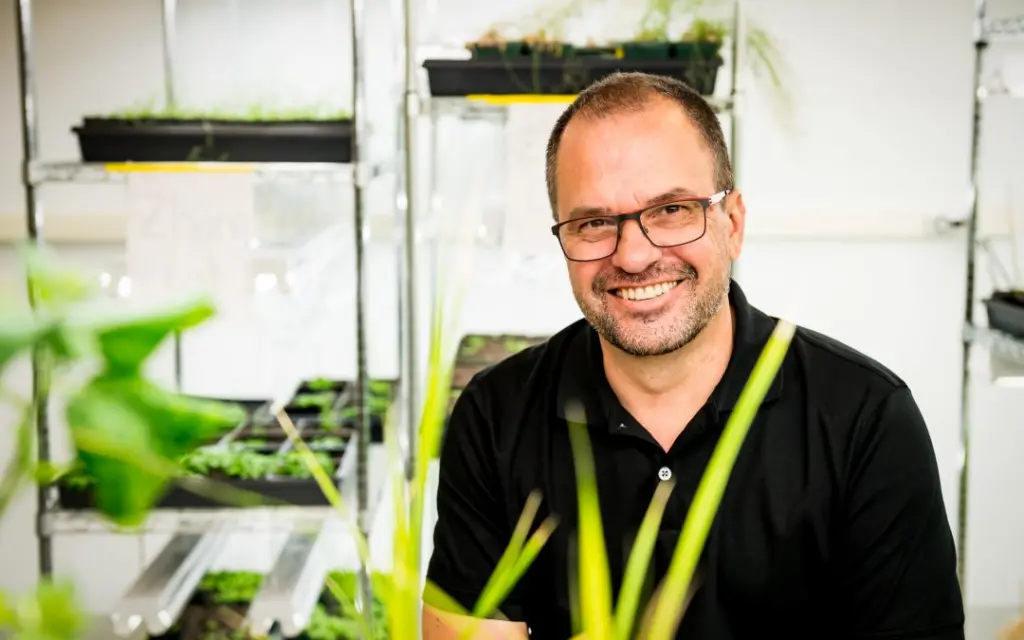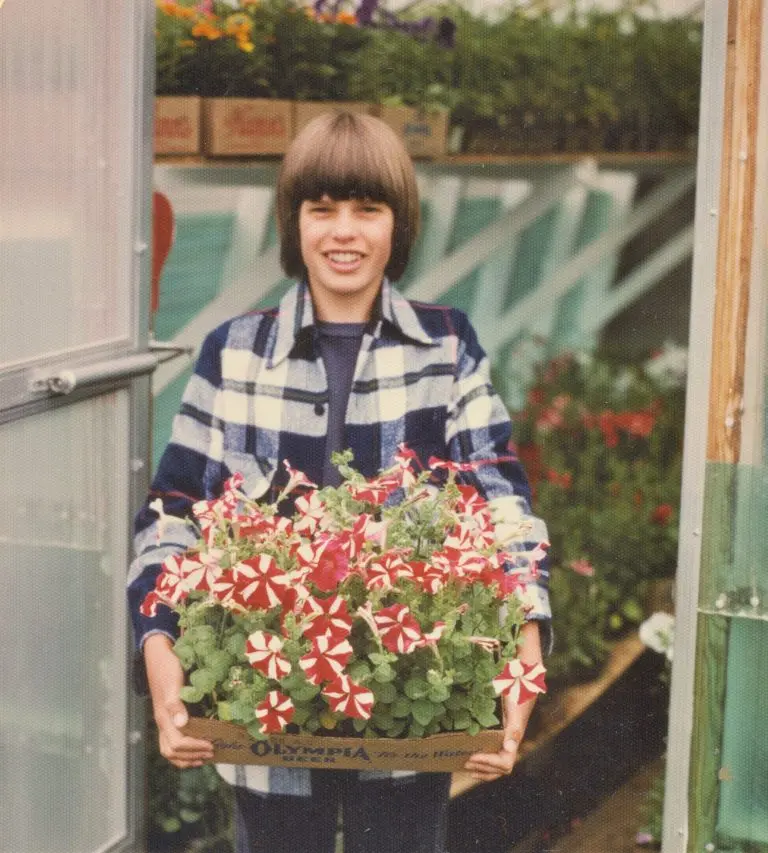
A renowned genetics expert who has worked for two decades to improve gene-editing techniques in plants has joined the Center for Advanced Bioenergy and Bioproducts Innovation (CABBI).
Dan Voytas, the McKnight Presidential Endowed Professor and Director of the Center for Precision Plant Genomics at the University of Minnesota, is part of CABBI’s Feedstock Production Theme — and Minnesota has become the center’s 23rd partner institution.
Voytas, a member of the National Academy of Sciences, is an expert in plant genetic engineering and genomics. He holds a number of patents related to genome editing and plant biotechnology and co-founded Calyxt, an agricultural biotechnology firm that uses gene editing for crop improvement.
He is best known for his pioneering work to develop new methods for precisely altering DNA sequences in living cells, allowing detailed functional analysis of genes and genetic pathways. In plants, targeted modification of genes allows scientists to better understand gene function and develop novel crop varieties with valuable new traits.
At CABBI, Voytas hopes to apply those techniques to bioenergy feedstocks that have proven tricky to modify.
“We are thrilled to have Dan officially join the CABBI team and take existing collaborations to the next level,” said Emily Heaton, CABBI’s Feedstock Production Theme leader. “Dan’s work represents a new frontier in biology. Together we can create and apply new knowledge to the bioenergy crops that will be part of humanity’s sustainable future.”
In particular, Voytas’s work has enabled efficient methods for targeted genome modification in plants using sequence-specific nucleases, enzymes that introduce a DNA break in target genes. Using zinc finger nucleases (ZFNs), TAL effector nucleases (TALENs), and the CRISPR/Cas9 system, his team has achieved targeted gene knockouts, replacements, and insertions in a variety of species.
Both TALENs and CRISPR have proven effective at editing or modifying a targeted gene, he said, but they’re still difficult to use in plants. It can be a challenge to get these tools into plant cells and to then recover whole plants from the edited cells. His current research is focused on optimizing delivery of nucleases and donor DNA molecules to plant cells, to achieve genetic changes more quickly and efficiently.
Voytas will bring that suite of tools and technologies to CABBI to help scientists target genes they want to modify.
One of his approaches is to use engineered viruses to carry the editing reagents; when the virus infects the plant, all the infected tissue is edited. Ideally, scientists want to edit cells that give rise to flowers and seeds, so the changes are transmitted to succeeding generations. Voytas’ group has achieved that in some plants, but not yet the C4 grasses of interest to CABBI.
“Miscanthus, sugarcane, and sorghum are difficult to get reagents into and difficult to edit. We’re trying to develop approaches for editing species that have been a little bit recalcitrant,” he said.
Voytas is both honored and excited to be part of CABBI’s bioenergy mission.
“This is the reason I worked on the technologies, so that we could implement them in plants, understand key aspects of plant biology, and harness what we learn to improve crops, or in this case biofuel feedstocks,” he said. “I’m excited because the technology is getting to the point where it can really be used in more sophisticated ways to accomplish more and tackle bigger challenges.
“The focus is very much on making better fuel feedstocks, but what we learn about plants’ metabolism and the tools and technology we implement are going to have impact beyond just that specific focus.”

Voytas has worked with CABBI researchers on other proposals, including a DOE-funded project with Director Andrew Leakey to identify genes important for drought tolerance and photosynthetic efficiency. The bioenergy-focused project, which aligns well with CABBI themes, is now applying that newfound genetic knowledge to sorghum.
Voytas is attending virtual CABBI meetings and will spend the next few months learning more about specific projects and technical challenges facing researchers. In the fall, he will hire a postdoctoral researcher to assist with his CABBI work, along with his current lab manager, Colby Starker.
A native of northern Minnesota, Voytas credits his father’s influence and the geography of his upbringing for his interest in science and genetics.
“My dad was a forester with the U.S. Forest Service. He really connected me with the natural world and biology,” he said.
His family lived in a rural area, and Voytas took up gardening at a young age. As a kindergartener, he piled tomato plants from the family garden into a wagon and went door to door, peddling horticultural wares to neighbors. Soon he was subscribing to horticulture and organic gardening magazines and spending his summers “inundated with plants.”
“I had a little bedding plant business,” Voytas said. “In the spring we would raise hundreds of marigolds, petunias, and tomatoes, put them in little flats, and sell them from home and at local grocery stores.”
A stellar student, Voytas went off to Harvard after graduating from his public high school but was surprised to find no horticulture department there. He took whatever plant-related courses he could find and developed an interest in molecular biology and plant genetics.
He stayed on to earn a Ph.D. in genetics under his mentor, geneticist Fred Ausubel, at Harvard Medical School. He then worked as a postdoctoral fellow at Johns Hopkins with yeast biologist Jef Boeke before joining the faculty at Iowa State University in 1992. He moved to Minnesota’s Department of Genetics, Cell Biology, and Development in 2008.
He’s happy to be back in his home state — and recently bought a house a block away for his mom and special-needs brother so they could live close by, remodeling it as a “quarantine project.”
— Article by CABBI Communications Specialist Julie Wurth